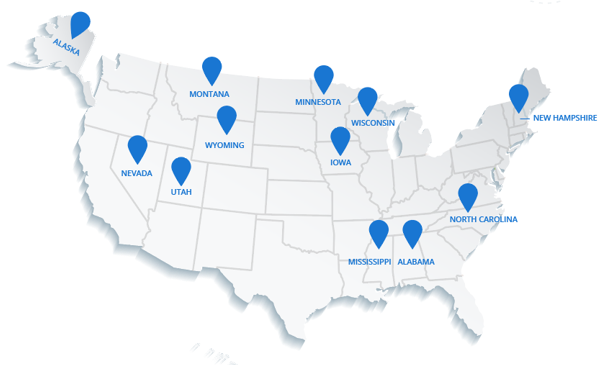If you are currently looking for job opportunities, click on the links below to apply for openings with healthcare leaders. Click here to sign up on DirectShifts.
- High paying CRNA job in Ohio
- CRNA job
- Primary Care Physician Assistant job
- On-Demand Travel Team for Mid-Level Providers NP / APP / PA
WFH- IFH- Interview From Home for APRNs and PAs
With the cases of Coronavirus in the U.S., companies across the nation are proactively seeking to keep their workforce safe. Many employees have begun to exclusively work from home (WFH). Healthcare facilities are restricting travel for employees and limiting on-site access to visitors and outsiders. As a result, onsite interviewing for recruitment is becoming increasingly difficult to navigate, but hospitals and clinics cannot afford to slow down their hiring processes. As a result, many are pivoting to interviewing from home (IFH). Though there are a number of pros and cons of IFH, for both the employer and prospective employee, everyone can benefit from maintaining flexibility and an open mind.
Pros:
For interviewers of Advanced Practice Registered Nurses (APRNs) and Physician Assistants (PAs) [collectively called Advanced Practice Providers (APPs)]: Anyone who has ever hired, or been hired as an APP knows that the interview process to the start date timeline can be quite lengthy. First, the candidate interview process can take anywhere from 3-8 weeks to complete. Then, the negotiations usually take 2-4 weeks before an acceptance time is made. Finally, graduating, testing, licensing, credentialing, and possibly moving can take another 12-20 weeks. Licensing and credentialing are usually the longest of these processes. APRNs may take even longer to license because they need their RN and APRN licenses. Depending on how long and at how many various places someone has worked can even influence verification time. Moving to a video interview in place of an on-site interview can actually shorten the recruitment time to fill. Scheduling a video interview generally results in earlier interviews because of increased availability for both the interviewer and interviewee when travel is taken out of the equation. Video recording can also enrich candidate evaluations. Interviewers can record 5-10 candidates and then review the interviews collectively with their team, or re-review their interviews for additional insights to provide better feedback. Standardization of interviews and feedback collection for an aggregated decision are top tools for quality and unbiased decision making.
For APP interviewees: Change of plans can be hard and unsettling. Take some time to adapt to the new interview format if your recruitment interview has moved from on-site to video. Be confident that this also is an advantage for you! You now have the opportunity to listen more closely to questions free from distraction, focus on your answer, and take notes, while continuing to be professional in your dress and the environment around you. Prepare for the interview the same as you would for an onsite interview and enthusiastically respond to questions from each individual.
Cons:
For the interviewer: A downside of virtual interviewing is the possibility of missing out on part of what a candidate has to offer. A significant portion of our communication is non-verbal and although you may catch some of these cues on video, some may be lost. It is important that both the employer and candidate have video monitors. It is very difficult to successfully hold an interview without seeing the person while they are communicating with you. Apps such as Skype or Zoom will allow for face-to-face meetings and help inform your decision. Virtual group recruitment interviews can result in more individuals talking over one another because certain social cues of who will speak next are missed. A one-on-one video interview has a much higher likelihood of success. If the interviewer is uncomfortable with video interviews, it might be important to practice ahead of time and have a plan with peers of speaking order. Most importantly, stress to your colleagues the merits of moving the interview forward despite the challenging circumstances. Provide an itinerary ahead of time, even for video interviews. Consider creating a sheet of highlights in the area including neighborhoods, restaurants, shopping, and schools. Recommend a house hunting trip in the future if the candidate decides to pursue the position. A summary sheet regarding comments from current employees about the work culture and environment can be helpful. Lastly, don,t forget to ensure that your candidates are comfortable using the technology ahead of time!
For the APP Interviewees: Virtual interviews may not allow you to fully witness the team dynamics, work environment/culture, or the local scene if you are planning to relocate. Still, through the interview process, you may be able to get a good sense of team dynamics. Don,t shy away from being straightforward in your questions about this. If someone is missing from the interview process, do not hesitate to ask if it would be possible to speak with that person as well. For example, this could include APP leaders or other APPs on the team, physician or nursing leaders, fellows, nursing staff, etc.. One of the biggest challenges for those considering relocation is the inability to preview the city or neighborhoods. Seek out people you know who live in the area, if applicable. Ask in your interview: “Can you tell me what it is like to live there? What do you like about it? What do you wish was there? Use Zillow and other real estate sites to look at houses and neighborhoods. Do school searches if necessary for your family. Then, if the interview process progresses, you can ask the employer to fly you out for an apartment or house-hunting trip. As an interviewee, prepare, be professional, and most importantly, have a very quiet, uninterrupted place to set up the interview. You will do fine!
This article was originally published on Melnic. It was recently acquired by DirectShifts.
June 7, 2022




Comments